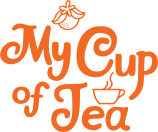
Poverty about More than Money
When most people contemplate poverty, they think about a severe lack of income, which is partially correct. We are all familiar generally with the Federal Poverty Guidelines, which determine what kind of assistance one is eligible to receive and how much. The 2022 guidelines define poverty as a family of four with income of $27,750 or less.
Internationally, the World Bank labels anyone who lives on $1.90 per day or less as living in poverty. Other economists, sociologists, and organizations they represent have developed thresholds of $3.10 per day and $7.40 per day. In most places in the world, the definition of poverty boils down to what it costs to purchase adequate food, shelter, and clothing.
There is no doubt that these basics (food, shelter, clothing) are essential for one to overcome poverty, but addressing the issue from an exclusively monetary standpoint misses the mark. It reminds me of a quote from my high school history teacher,
“Money can’t buy you happiness, but you can be sad in a better part of town.”
I think Mr. Freeman was trying to grab our attention with a joke, but there is a broader point. If we could meet the basic needs of those living in poverty, which we should strive to do, there would still be a dearth of other critical resources – some that money can’t buy.
The ministry Compassion provides a broader definition of poverty,
"Poverty is hunger. Poverty is lack of shelter. Poverty is being sick and not being able to see a doctor. Poverty is not having access to school and not knowing how to read. Poverty is not having a job, is fear for the future, living one day at a time. Poverty is losing a child to illness brought about by unclean water. Poverty is powerlessness, lack of representation and freedom."
Another definition from educator, Dr. Ruby Payne that we’ve used before is,
“it’s [Poverty] a lack of resources: financial, emotional, mental, spiritual, physical, support systems, relationships, role models, and knowledge of hidden rules.”
What these two views of poverty have in common is that they are more inclusive than just lacking financial resources, and some of the absent resources cannot be bought - specifically, relationships and how one feels about oneself.
People living in poverty often describe themselves as ashamed, inferior, or powerless, according to the Chalmers Center. The relationships they have are mostly limited to people living in close proximity and struggling with the same poverty-related issues. This limits a person’s ability to connect with opportunities for education, housing, mental health services, etc. or to effectively navigate complex systems. How? Well, we all the know the saying, “it’s not who you are, but who you know.” Knowing who to ask, or even better, having a friend or acquaintance who knows the answer is a resource most of us take for granted. However, for the under-resourced, the lack of relationships is most often a guarantee of failure.
Another aspect to relationships that most of us don’t appreciate is the emotional and physical support relationships provide. Many living in poverty are single parents with no system of support. My wife and I have raised four children that are all born two years apart. We lived two doors down from my in-laws. My dad, stepmother, and sister lived 15 minutes away. My sister-in-law and her family lived 25 minutes away, and we were part of a church family. All were resourced and able to help us when needed, and we were still exhausted at the end of each day. Imagine a mother or father living at the poverty level with multiple small children and no one to offer encouragement, a ride, or a respite.
As daunting as a lack of relationships is, a poor self-image may be the most damaging. Feeling ashamed because you needed help or couldn’t provide for your children leads to a resistance to asking for all that you need or accepting what well-meaning people give even though it’s not what helps. Believing you are inferior results in staying quiet, rather than advocating for yourself and your family. And a sense of powerlessness, breeds an attitude of, “It won’t matter anyway, so why try?”
Let me acknowledge that we have written a lot about poverty already, and we will write more about it in the future. It is because we want our customers and supporters to understand that poverty is complex and people, no matter how hard they work, don’t overcome it in a short time. Because poverty is complex, we approach our mission more broadly than simply focusing on workforce development.
We provide jobs to help meet basic needs, but also to address feelings of inadequacy and so that everyone can experience the dignity of work. We incubate relationships between the women who work here, but also between the employees and the volunteers whose networks are far more expansive than those of the employees. We encourage the women to speak up, either in a group or one-on-one, about their needs, their struggles, and how we can help. And we offer Bible study and prayer, because we want them to know that we are all broken, but in Christ none of us has to be ashamed.


